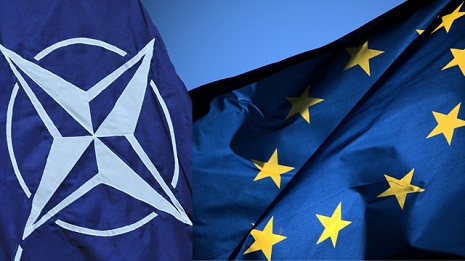Stoltenberg encouraged political forces to act responsibly and to focus on reforms to meet the requirements of the Euro-Atlantic agenda set by Skopje.
For his part Gruevski told the head of NATO that his county would "withstand pressure". The two were referring to a recent scandal involving opposition leader Zoran Zaev and his socialists from the SDSM party, which are maintaining - and showing what they describe as "evidence" - that the executive is applying pressure on the judiciary and the media outlets.
In turn Gruevski accused Zaev earlier this year of trying to stage a coup d`etat inspired or assisted by foreign intelligence services. This week Macedonia`s Interior Ministry also accused the opposition leader, who is also the mayor of Strumica, of being involved in an alleged bribe scheme.
The confrontation is already yielding is results, and there have been recent reports of Gruevski`s isolation from contacts with EU leaders. EU Commission President Jean-Claude Juncker denied him a meeting in February, and there contacts with EU institutions have silently been reduced in the past weeks.
On Wednesday, the European Parliament also voiced its concern over the deteriorating situation in the "Western Balkans", meaning a deepening political polarization.
Alongside Kosovo, Montenegro and Serbia, it also warns of negative developments in Macedonia in its March 11 statement, urging constructive political cooperation. MEPs believe the European Council should set a date to launch negotiations with Skopje on its EU membership as soon as possible to avoid the undermining of trust in the EU`s enlargement policy.
Bulgarian MEPs (including EPP and PES members) also announced Wednesday that the political situation in Macedonia needs to normalize swiftly.
More about:
















































